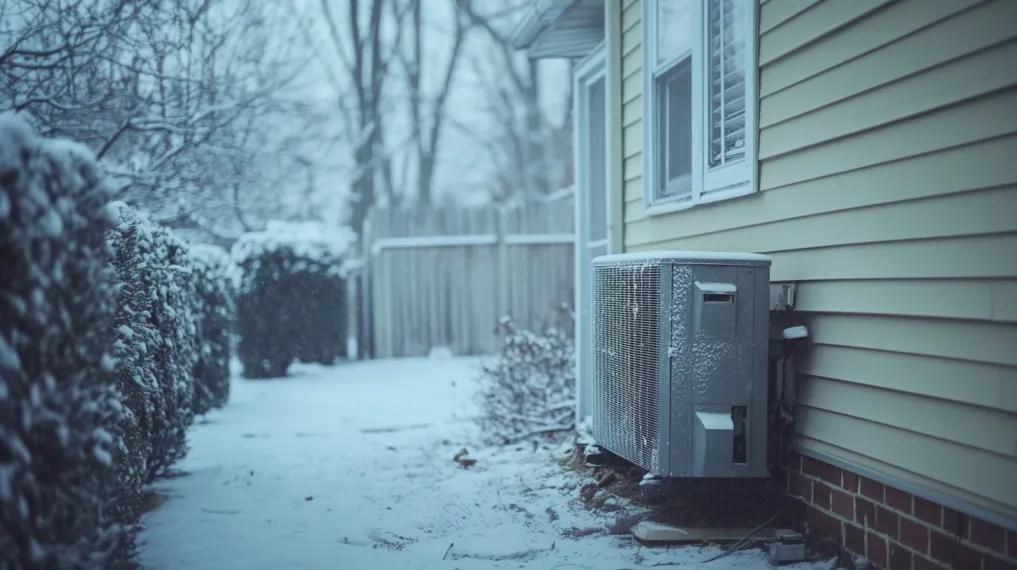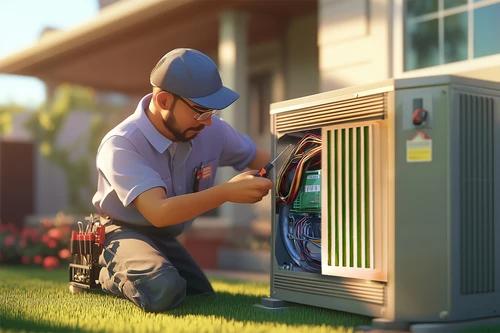Air Handler Troubleshooting Tips for Homeowners

An air handler is a crucial piece of equipment in many HVAC systems. Responsible for circulating air throughout your home, it works alongside other components to keep your spaces comfortable.
An air handler that’s not working properly can cause uneven temperatures, reduced efficiency, and other issues. HVAC.com shares some air handler troubleshooting tips for common issues, so you can get your HVAC system back in shape or know when to call a professional.
What the Air Handler Does
The air handler contains the blower, filter, and other essential components that push conditioned air through your ductwork. It also houses coils that help cool or heat the air before it enters your home.
HVAC systems that include an air handler are those with heat pumps or homes equipped with air conditioning only. In these setups, the air handler works as the indoor unit that sends conditioned air throughout the home.
If you have a furnace paired with an air conditioner, the furnace typically serves as the indoor unit and houses the components usually found in an air handler, such as the blower motor and coils. This design eliminates the need for a separate air handler for the cooling system.
Air Handler Troubleshooting Tips for Common Problems
If your HVAC system is acting up, the air handler may be the source of the problem. Here are some common issues and air handler troubleshooting tips to help you address them:
Air Handler Won’t Turn On
When your air handler doesn’t start, it could point to a power supply problem. Check the following:
- Breaker Box: Look for a tripped circuit breaker. If it’s tripped, reset it and monitor the air handler.
- Thermostat Settings: Make sure your thermostat is set correctly to heating or cooling mode and that the temperature setting prompts the system to run.
- Disconnect Switch: Some systems have a disconnect switch near the air handler. Make sure it hasn’t been accidentally turned off.
If these steps don’t resolve the issue, the motor or control board may need professional attention.
Blower Fan Isn’t Running
The blower fan is the component that moves air through your home. If it’s not working, check these components:
- Air Filter: A clogged air filter can restrict airflow and cause the blower motor to overheat and shut down. Replace a dirty filter with a new one and try restarting the system.
- Fan Belt: In older systems, a worn or broken fan belt might be the issue. Inspect the belt for visible damage or a loose fit around the pulleys. Remove the damaged belt and replace it with a new one – make sure it’s properly aligned with the pulleys and adjust the tension to prevent slipping.
- Obstructions: Debris or loose parts inside the air handler can jam the fan. Turn off power to the system before inspecting and remove any debris found in the blower assembly.
If these solutions don’t fix the problem, a capacitor or the motor itself may be burned out and require replacement. Also, if you’re not comfortable changing a damaged fan belt, call an HVAC technician to take care of this repair for you.
Weak or No Airflow
Weak airflow or no airflow coming from your vents may mean the air handler is struggling to push air through the ducts. Try these air handler troubleshooting tips:
- Dirty Air Filter: A clogged filter restricts airflow, which can be the cause of weak airflow. Check the filter and replace it if it’s dirty, then check airflow from your vents to see if it is stronger. Replace the filter every 1-3 months for optimal performance.
- Blocked Ducts: Check visible ductwork for obstructions. If flexible ducts are kinked, carefully straighten it by gently pulling or adjusting it. Align disconnected duct sections – they should overlap or fit snugly together. If the ducts have a connector or collar, verify that it’s secure. Use foil tape (not duct tape) to seal the connection.
Blower motor issues can also lead to weak or no airflow; you can also try the air handler troubleshooting tips above this section for a blower fan that isn’t running. If you’re unable to correct the airflow issue, an HVAC technician can test and repair the motor if needed, or address any duct-related problems.
Strange Noises
Unusual sounds coming from the air handler often indicate a mechanical issue. Here’s what the noises can mean and the air handler troubleshooting tips to fix them:
- Rattling or Banging: Loose screws, bolts, or panels can cause vibrations. Tighten any loose parts and verify any access panels are securely closed to stop the noise.
- Squealing: Motor bearings may need lubrication. For older blower motors with oil ports, remove the cap and apply a few drops of lightweight motor oil (specified for HVAC use), rotate the motor shaft by hand to distribute the oil evenly, and replace the cap. A damaged fan belt can also cause squealing; follow the above instructions to replace it.
Other noises, such as hissing, clicking, or buzzing, can point to more serious mechanical problems like refrigerant leaks, electrical problems, or damaged internal components. These issues require prompt attention from an HVAC technician to prevent further damage and restore your system’s performance.
Leaking Water
Your air handler can produce water as a byproduct of the cooling process, but it should drain properly. If water is pooling around the unit:
- Inspect the Drain Pan: Look for cracks or clogs in the condensate drain pan. Clean or replace it as necessary.
- Clear the Drain Line: Algae or debris can clog the drain line. Use a wet/dry vacuum or a plumbing snake to clear blockages.
- Check the Coils: Dirty coils can cause condensation to overflow. Clean the coils with a soft brush or an approved cleaning solution.
If you’ve checked the drain pan, line, and coils but water continues to leak from the air handler, it could indicate a more complex issue, such as a malfunctioning pump or refrigerant problem. In these cases, it’s best to call a professional HVAC technician to accurately diagnose and repair the problem.
When to Call a Professional for Air Handler Repairs
While air handler troubleshooting can often resolve many minor issues with your system, others require the expertise of a licensed HVAC technician. Here’s when to bring in the pros:
- Electrical Issues: Problems with wiring, circuit boards, capacitors, and other electrical components are best left to a professional to avoid safety risks.
- Refrigerant Leaks: Only certified technicians can handle refrigerants and make the necessary repairs.
- Persistent Problems: If the issue keeps returning or you’re unsure of the cause, a technician can perform a thorough diagnostic inspection to accurately identify the malfunction.
